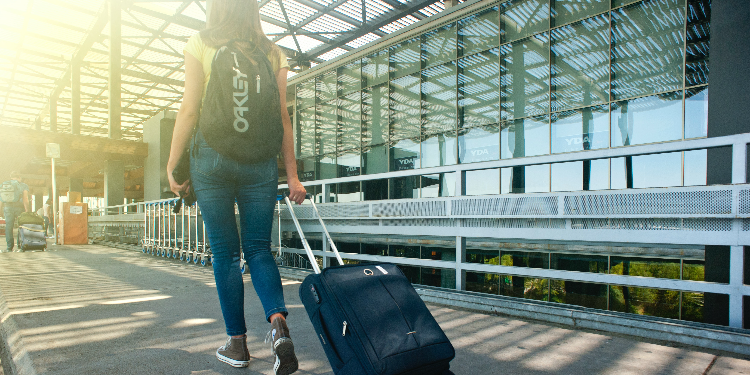
It's been nearly a year since the COVID-19 crisis tore thousands of families apart. While many expats chose to stay in their host country, and others were stranded abroad due to travel restrictions, some chose to reunite with their family in their home country. They talk to Expat.com about how hard it was in the beginning and where they stand today.
Expats in the comfort of their home
Originally from Belgium, had been on a professional assignment in Ghana since January 2020. In normal times, he used to go back home for two weeks during each of his missions when he is unable to take his family. But things got complicated with the pandemic. “Travel restrictions are hard to bear psychologically, which was also my case because I was in Ghana, where there were not many cases, while my family was locked down in Belgium. I could demand to return, but there was a major risk of being contaminated at airports or on the plane." So instead of taking the risk or putting his family at risk, he waited for several months until he could return. After two weeks of quarantine, he was finally able to reunite with his wife and children.
This sounds familiar to Julien Faliu, the founder of Expat.com who has also been a French expat in Mauritius for 13 years. In the early days of the pandemic, Julien was in New York for professional training. Fortunately, his wife and daughter had accompanied him. Still, he hard a hard time dealing with the situation. "As Mauritius had closed its borders, we had to return to France, which was still open to its citizens." He only managed to secure a flight to Mauritius by the end of August. "I haven't stayed for so long in France since many years."
Back home until better days come
Maria was lucky to return to Greece, her home country, a few weeks before the pandemic was declared. It was a planned trip with an open ticket to spend some time with her family. "The first case in Greece was reported on February 26 and on March 12 schools closed down, followed by restaurants, shops, etc. Returning to her expat country became impossible with all the international and air travel restrictions".
In hindsight, she believed that it was for the best. "I am in a city that so far has zero cases meaning that I have relative peace of mind. Also, I am one step away from the beach. Open water swimming and walks by the beach keep me sane. If I get sick, I have my family and a good understanding of the healthcare system here."
Greece is currently undergoing the second lockdown as a result of the second COVID-19 wave, which is bigger than the first one. On December 14, the government reported 639 new cases and 62 deaths. Between March and July, the number of daily cases wouldn't exceed 50 and deaths were minimal. The ongoing lockdown started on November 7, and according to the latest information, it will end on January 7 with a high possibility of an extension. All shops, except supermarkets and pharmacies, have put up the shutters. Restaurants are also closed unless they are willing to do takeaways, and all-day café-bars, which are the cornerstone of Greece's social life, are closed. There is a 10 PM to 5 AM curfew, and you can't step out without your ID and the regional movement form. The police are performing checks, and the fines vary between 300 Euros for individuals and 5000 Euros for businesses.
"So, social life is limited. I am in Nafplio, a picturesque seaside town, 140 km southwest of Athens. But I grew up in Athens. I went to school there, and even to university for my undergraduate. Most of my Greek friends are in Athens. I arrived in Greece on February 19 and ever since I haven't been able to travel to Athens because the city is consistently a red zone. I am grateful that in the summer, when travel from one region to another was allowed, friends came to visit me in Nafplio and I did some off-season travelling within the country." Maria is a freelance journalist and is currently working remotely until she gets the green light to return to Rwanda, her new expat country. “My husband's work base is in Rwanda. Since August, he has been working remotely from Greece, but in January he is travelling back to Rwanda. We decided that I should stay in Greece for the time being. Also because he brought our dog from Rwanda, and at the moment travelling with a pet is close to impossible with most airlines." But as a serial expat, Maria is already thinking about her next move. "In fact, the dream of my next relocation is what gives me motivation. But for now, let's focus on staying mentally and physically healthy and true to ourselves!
Zaeemk, an international student from Pakistan, also chose to leave the Netherlands during the pandemic. Studying Digital Business MBA student at the University of Amsterdam, he went back to Pakistan in March 2020. However, Zaeemk is currently back in the Netherlands, hoping to find an internship, which is even more challenging now due to the COVID-19 crisis. “In the Netherlands, precautions are still in place, and masks are compulsory in indoor areas and public transport. Besides, most professionals are still working from home, and University courses are being held online as well." Still, Zaeemk is happy to be back in the Netherlands, mainly due to the availability of career prospects.



















